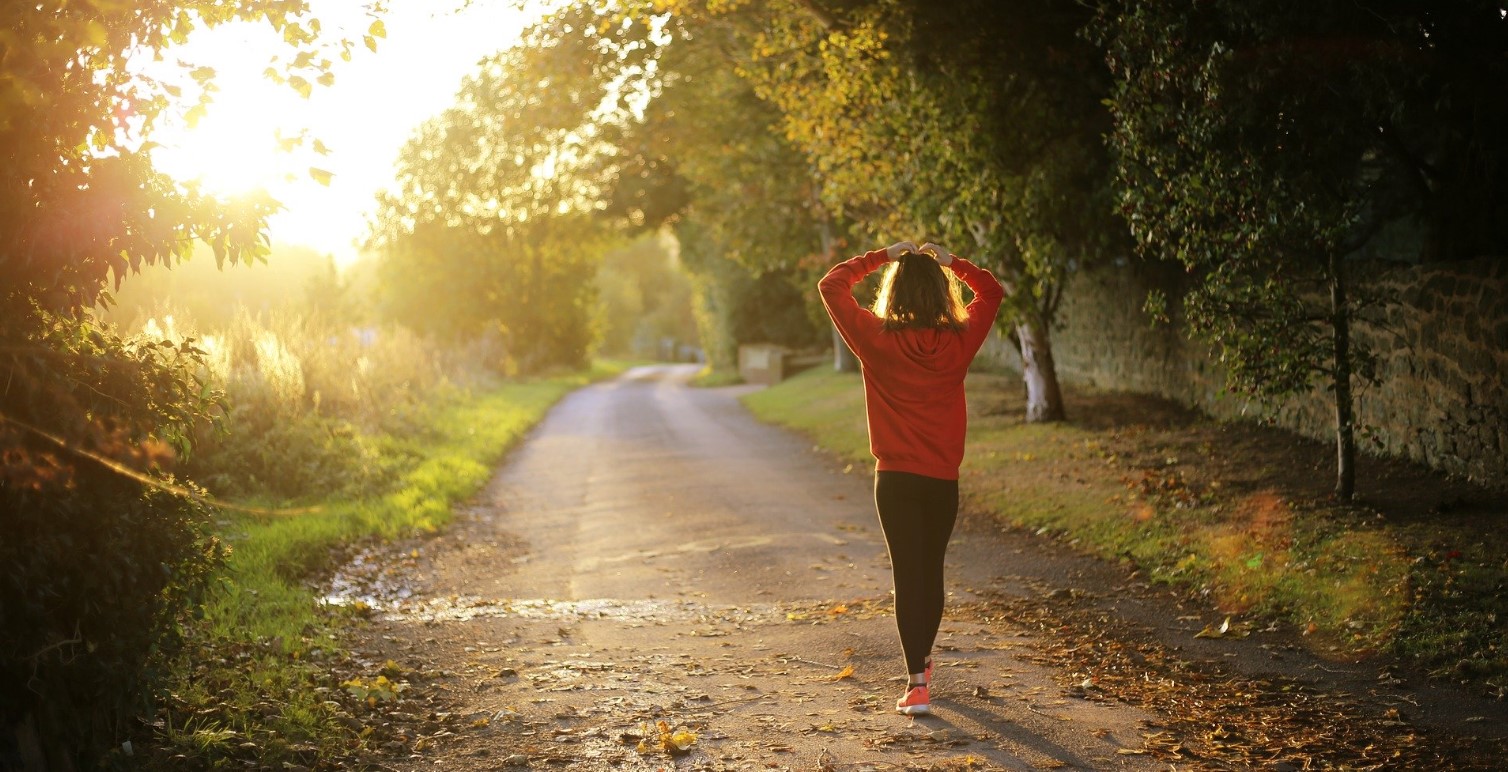MENTAL HEALTH RESEARCH REVEALS HOW UK ADULTS ARE MANAGING STRESS 
11 October 2020
A new research study has found that walking outside, visiting green spaces such as parks and contacting family and friends are considered by UK adults as the most helpful ways to cope with stress about the pandemic.
The new research is part of the 'Coronavirus: Mental Health in the Pandemic' study by the Mental Health Foundation, in partnership with the universities of Cambridge, Swansea, Strathclyde, De Montfort, and Queen's University Belfast.
The findings highlight factors that can help prevent mental health problems and are published in the week of World Mental Health Day (Saturday, 10 October).
The key findings include:
- Six in ten (59 per cent) of UK adults who had experienced stress because of the pandemic said walking helped them cope
- Half (50 per cent) of UK adults who had experienced stress because of the pandemic said visiting green spaces, such as parks, helped them cope
- Almost half (47 per cent) of UK adults who had experienced stress because of the pandemic said contacting family (e.g. by phone, video chat, etc) had helped them cope
- Almost half (46 per cent) of UK adults who had experienced stress because of the pandemic said contacting friends (e.g. by phone, video chat, etc) had helped them cope
- More than eight in ten (82 per cent) of UK adults have experienced stress because of the pandemic
The survey also found that nearly four in ten people (39 per cent) who had experienced stress because of the pandemic said maintaining a healthy lifestyle, such as sleeping well and eating healthily, had helped them cope.
Almost four in ten people (38 per cent) said that doing a hobby was helpful.
Dr Antonis Kousoulis, the Mental Health Foundation’s Director for England and Wales, said:
“The good news here is that at a very difficult time for many of us, millions of people across the UK are using effective ways to improve their wellbeing.
“Going out for a walk, visiting a park and being in contact with family and friends are great ways for us all to protect our mental health and prevent problems. Wider research evidence, as well as our latest survey findings, makes this very clear. Our new findings matter for policy, which can make it easier or harder for people to cope at a time that is stressful for millions of us.
“At a time of local restrictions, it’s more important than ever that local authorities invest in improving our neighbourhoods and leisure areas, to create safe, green spaces for outdoor activities.
“That is why we are asking the UK Government to take the lead by publishing a cross-government plan to promote people’s mental health and wellbeing. We also want the Government to ensure there continues to be a distinct national body responsible for public mental health in England.”
Professor Gavin Davidson, from the School of Social Sciences, Education and Social Work, and Queen's lead on the research project said:
"These research findings reinforce the importance and benefits of us actively promoting our mental health through being active, engaging with nature and connecting with others.
“This positive focus on mental health promotion and prevention will hopefully also be a key aspect of the new Mental Health Strategy for Northern Ireland which is currently being developed by the Department of Health."
The latest findings are from a YouGov survey done on 26-28 August, among a nationally representative sample of 4,251 UK adults. It asked participants what had helped them cope during the previous two weeks.
Professor Tine Van Bortel, from the University of Cambridge and De Montfort University Leicester, said:
“There’s a growing body of strong research evidence about the determinants of our health and wellbeing. That is replicated by our findings. Access to nature and safe green spaces, positive social contacts, healthy lifestyles and meaningful activities are all crucial, for us to function well.
“There is also strong international evidence that there is no trade-off between public health and the economy – quite the opposite: healthy, happy people make for stronger communities and thriving economies.
“This has important policy implications. The government should create a sustainable wellbeing economy developed with the active involvement of our communities – and a pandemic recovery plan that reaches right across government departments and society itself.
“This would also help to tackle the deep inequalities exposed by the pandemic.”
Further information on research and analysis carried out at Queen's in response to COVID-19, can be found at: https://www.qub.ac.uk/coronavirus/. If you would like to help the University in its efforts to tackle the pandemic, visit our Rapid Response page.
To support health-related research projects at Queen’s, visit the Development and Alumni Relations Office website or contact Teresa Sloan, Head of Health Fundraising.
Media enquiries to Zara McBrearty at Queen’s Communications Office on telephone: +44 (0) 7795 676 858.
Picture credit: Main image by Pexels from Pixabay
Back to Main News
Top of Page